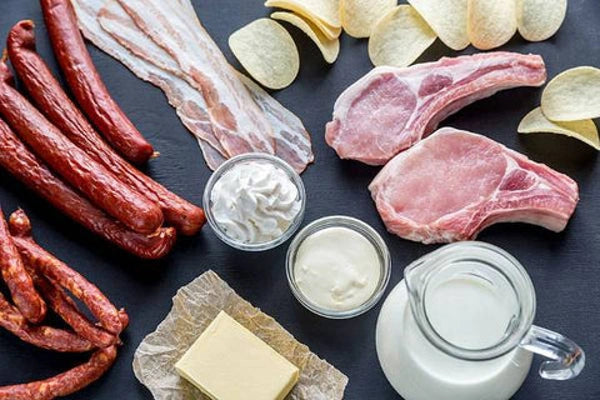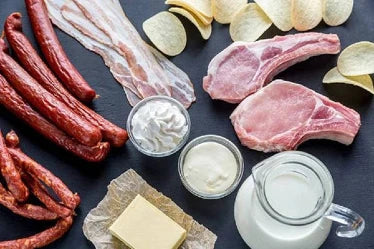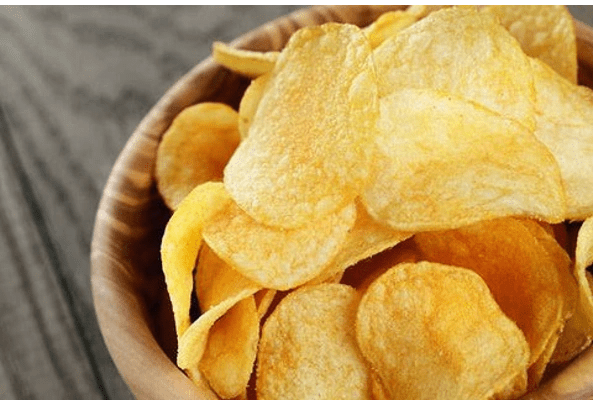From performance athletes to the everyday dieter, some of the most-asked questions at nutritionists' offices are “How many carbs should I be eating?” “Everyone at my gym is Paleo. Is it okay to eat grains?” and “How safe is Keto?”
If weight loss is your primary goal, then it's easy to see the appeal of a ketogenic diet. Research shows that those who eat very-low carb initially lose weight faster than on any other diet. But ketosis—the state of burning fat instead of carbs for energy—occurs when only 5% of the calories you consume come from carbs. For comparison, the average American carb intake is 50%. That means that fans of ketogenic diets compensate by increasing their fat intake.
With disproportionately high levels of fat intake, low consumption of nutrient-dense fruits and whole grains, and very little research into the long-term effects of such a diet, nutritionists warn: watch your saturated fat. As keto becomes more popular, long-term dieters find that if they don't feed their gut microbes the fibrous fruits, veggies, and whole grains they crave, it could get ugly, fast.


Good fats, bad fats, and the downright ugly
Whether a fat is “good” or “bad” depends on its relationship to cholesterol. Associated with heart disease, cholesterol has become an ugly word. In reality, our body needs cholesterol to make hormones, build cell membranes, and produce vitamin D. But a cholesterol called low-density lipoprotein (LDL) clogs arteries; conversely, high-density lipoprotein (HDL) removes excess cholesterol from the system and transports it back to the liver for processing. So good dietary fats that trigger the production of HDL cholesterol and bad fats that trigger LDL. Saturated and trans fats fall into the bad category. Trans fats, however, are especially problematic; not only do they increase levels of LDL, but they also decrease HDL.
The easiest way to avoid bad fats is to stay away from processed and commercially packaged foods. If “partially hydrogenated” appears anywhere on the ingredients list of the food you're eating, you're consuming trans fats. And if you read that last sentence and thought, “But there are hydrogenated oils in everything!” you wouldn't be wrong. Hydrogenation increases the longevity of food products, so if it sits on a shelf in your pantry, it most likely contains the bad stuff. Yes, even “healthy” foods such as granola bars aren't immune.
Saturated fats are often associated with animal fats—like red meat or dairy—so unless you go vegan, they're harder to avoid. But they also aren't too terrible for you; in addition to raising LDL cholesterol, it also raises HDL. Whether or not it's bad for you relies on a variety of other factors, like your gut.


So, what does that mean for your gut?
Dietary fats take longer to process than any micronutrient, with most of the digestion occurring in the small intestine. Here, fluids from the liver, pancreas, and gallbladder work together to turn those fat particles into something your body can use. When your body consumes a high-fat diet, your digestive system goes into overdrive trying to get the nutrients it needs. Saturated fats require more bile (fluid from the liver) than unsaturated fats.
Bile is rich in sulfur. Many bacteria find a gut full of sulfur to be an unpleasant environment to live in, but Bilophila wadsworthia love it. In the average human gut, Bilophila wadsworthia make up about 1% of the relative abundance of the microbiome. In the presence of a diet heavy in saturated fat, that population can go up to 6%. High levels of Bilophila wadsworthia has been linked to increased intestinal permeability, which leads to systemic inflammation and inflammatory diseases like colitis.
But Bilophila wadsworthia isn't the only bacteria that thrive on a diet of saturated fat. Keto guts show an abundance of Clostridium bolteae and Blautia (attributed to an increase in insulin resistance and body mass, respectively) as well. And as these colonies grow, they crowd out beneficial bacteria, lowering overall diversity.
Living in balance
That doesn't mean that eating some butter or adding coconut milk to your coffee will doom you to an unhealthy gut. But the diversity of your microbiota reflects the diversity of your diet, and the beneficial, probiotic bacteria thrive on a lot of the foods that ketogenic diets prohibit. Consuming saturated fats just adds insult to injury.
Swapping saturated fats with unsaturated can help decrease the burden placed on your gut microbes. Polyunsaturated fats—particularly omega-3 fatty acids—can reverse gut inflammation associated with saturated fat consumption. Eat more olives, nuts, seeds, avocado and fatty fish, and less bacon and cheese and you'll be well on your way.
Are you on a ketogenic diet and want to know how saturated fat has affected your gut? Take the Floré Gut Test.